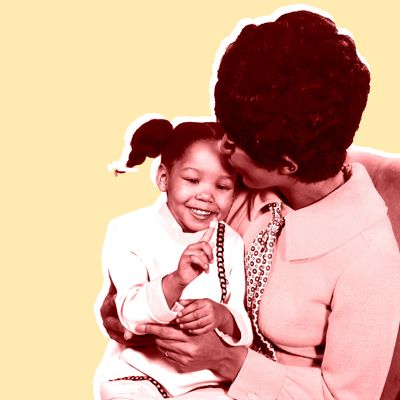
A human doesn’t enter into the world with a fully formed personality springing forth from their genes. Rather, babies enter the world with a temperament — or the raw material of personality — that is sculpted into personality by experiences in the world: at school, with friends and siblings, and, perhaps most of all, by their parents. But, as an exciting and quickly growing subfield of developmental psychology is finding, not all kids are affected by good or bad parenting in the same way. Some are less affected by what their parents do, while others will be really helped or really harmed by their caregiver’s behavior, something called “differential susceptibility” in the literature. According to a new meta-analysis, it’s the kids who have the stormiest inner lives that have the most at stake in family dynamics.
Published in Psychology Bulletin in August and recently written up by Christian Jarrett at BPS Research Digest, the paper gathered some 84 studies for analysis. (Over half of the studies were from 2010 or later, speaking to how popular the field is becoming.) The University of Utrecht research team, lead by Meike Slagt, was looking to see how temperament — or the earliest indications of personality — interacted with parenting style. They wanted to see how much “negative” or “positive” parenting styles resulted in healthy or unhealthy behavior in the kids, depending on four different aspects of childhood temperament: surgency, or impulsivity; effortful control, or early conscientiousness; and negative emotionality, or the tendency to experience unpleasant emotions, which later on in life develops into neuroticism. They also evaluated the harder-to-define construct of “difficult temperament,” which combines all three and is a nice way of talking about the kids that scream at the grocery store.
In crunching the numbers on all these studies, the researchers found that the kids with negative emotionality — as rated in infancy — were the most affected by parenting style: hurt the most by bad parenting, helped the most by good parenting. In the context of this study, “good parenting” was defined by warmth, or how much parents made their kids feel “comfortable, accepted, and approved,” and control, or how parents got their kids to do things. That’s either positively, through giving information, guiding the kids’ behavior by helping them think through things, and teaching them to behave responsibly; or negatively, through harsh discipline or withholding love and affection.
How the kids were affected by these parenting styles varied. The unhealthy behaviors could be internalized, in the form of anxiety, depression, and self-harm, or externalized, through aggression, delinquency, or drug use. Same with the healthier, where the external would be empathy, community involvement, or “prosocial behavior,” which essentially means being kind to people; the internal would be succeeding in school and getting better with language, and shown in reasoning, memory, and other forms of cognitive development.
The researchers found that surgency and effortful control didn’t have too great of an effect for how much kids were negatively or positively affected by parenting styles. The negative emotionality — the precursor to neuroticism — that made kids most “susceptible” to being really hurt by wrathful, neglectful parenting also allowed them to really be helped by kind, consistent parenting. The vulnerability cuts both ways. “The very quality that appears to be a frailty in children may also be their strength, given a supportive parenting context,” the authors write.
From a methodological perspective, there are a couple of things to consider with a meta-analysis like this. First of all, many of the studies included in the analysis have a relatively low sample size, of under a hundred children. Additionally, the authors caveat, the measured impact of parenting style upon child behavior was “small in size, differing approximately .05 to .10 between children scoring low and high on a trait.” The actual amount of difference wasn’t super high, in other words, which points to it possibly being difficult to replicate those studies. Also, it needs to be noted that there’s something very compelling about the “negative” trait of feeling more uncomfortable emotions as possibly being helpful to kids if their parents are good enough at being parents, and as my colleague Jesse Singal has argued, super-inspiring results gain lots of traction without necessarily being sound, as the recent furor around power poses has attested. The better a finding makes you feel, the more you need to be skeptical. But since “differential susceptibility” is so in now as a research topic, it makes you hope that over time we’ll home in more on how child and parent personalities fit together, nudging us closer to a culture where more kids have a chance to truly flourish.

